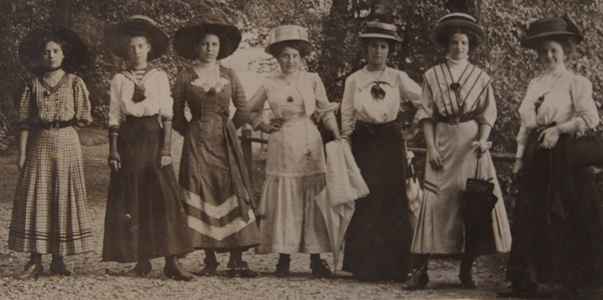
A key objective of women’s movement activists was to convince other women to emancipate themselves, following the founders of the General German Women’s Association who promoted ‘self-emancipation’.
This project deals with a specific part of the public, the target audience of women’s movements between the 1870s and the 1930s. Who became involved in their debates? How did these women assess their situation and the situation of other women? Did the letter writers respond to certain questions more frequently than to others? What did they worry about in their daily life, and what questions did they raise concerning the improvement of their situation or the circumstances of other women?
Letters to famous women’s movement activists written by women hitherto unknown to them are a promising source to get a better understanding of the core target audience of women’s movements. These letters show that there was a large group of women who – albeit not being members of any women’s organization – became increasingly concerned with issues of women’s rights, education and employment. The characteristics of these sources will be studied in a transnational perspective, integrating letters written in German, Hungarian, English and French. In addition, this project intends to compare these letters with other epistolary and supportive practices that may have served as models for this specific communicative practice within the women’s movement. These include citizen letters to politicians (Fenske 2013), published readers’ letters to editors of women’s movement journals, and women’s legal aid in the period under review.
 Women´s Letters to Women´s Movement Activists, c. 1870-1930
Women´s Letters to Women´s Movement Activists, c. 1870-1930